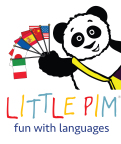A post by new contributor Antonio Battro, OLPC’s Chief Education Officer
Recently, there has been much debate about whether computers, video games and electronic gadgets are helpful or harmful to the cognitive development of children. Some naysayers point to a study that says that multi-tasking degrades cognitive performance. The proponents assert that new digital technologies provide new opportunities for creativity and collaboration. This debate is also being played out in ministries of education, universities and classrooms all around the world. The outcome will have a major impact on the education and development of our children.
New disciplines coming from the neurocognitive sciences are changing our theory and practice of education and shaping the new field of neuroeducation. At the same time, new communication and information technologies are changing the way we teach and learn. Millions of children and teachers of the world are sharing and shaping a new neurocognitive digital environment. This formidable transformation has opened a debate that often mixes facts with myths. One of the most disruptive “neuromyths†is that early introduction of computing can harm the brain development of a young child and cause “attention damage.†Some even argue that computing in schools should be introduced only to older children. These are myths that we must replace with facts.
One of the amazing facts is that first and second languages are processed in the same cortical regions of the brain when the second language is learned early in life. Otherwise, the second language is shifted to different circuits of the cortex. In a sense, when humans use a computer and share the same digital environment they are using a second language, or “digitalese.” Postponing the new linguistic skills needed in a digital world contradicts scientific findings in neurolinguistics.
Continue reading →


 Little Pim the Panda has a series of videos that are part of an ‘Entertainment Immersion Method’ which uses animation to help children learn new vocabulary, and improve analytical, memory and concentration skills in 11 languages. Children can learn over 360 words and phrases using all of the Little Pim lessons. Now OLPC is partnering with them to bring language learning to millions of students with XOs around the world.
Little Pim the Panda has a series of videos that are part of an ‘Entertainment Immersion Method’ which uses animation to help children learn new vocabulary, and improve analytical, memory and concentration skills in 11 languages. Children can learn over 360 words and phrases using all of the Little Pim lessons. Now OLPC is partnering with them to bring language learning to millions of students with XOs around the world.